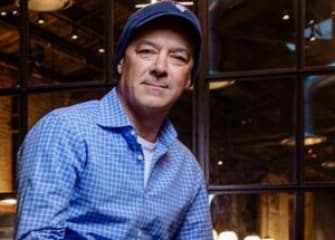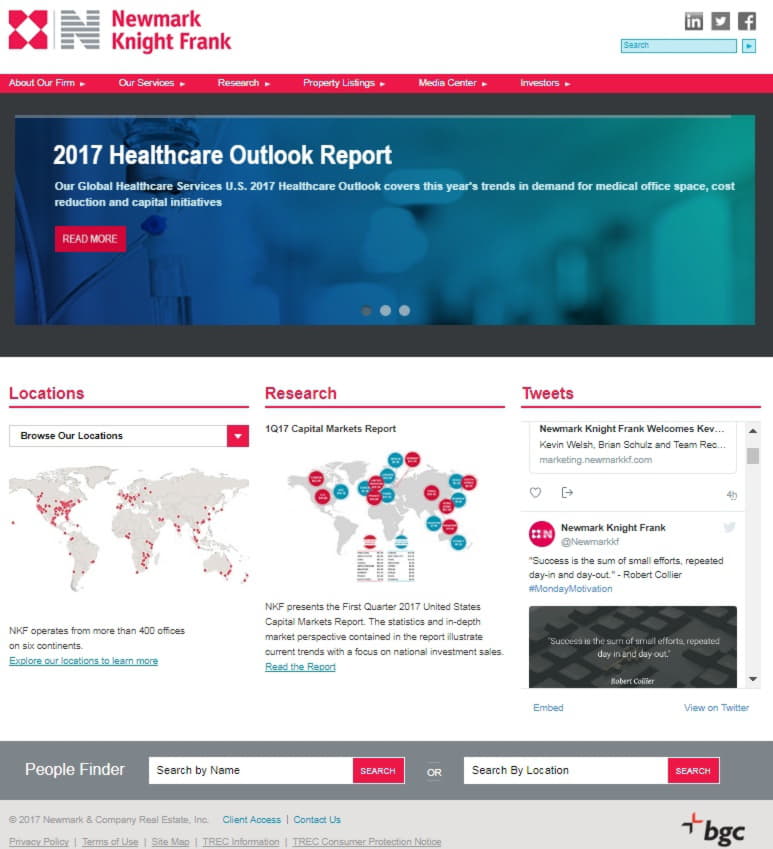
Todd Carmichael
Click here for Part I, Part III & Part IV
Bringing together the best of modern and ancient coffee roasting traditions
Todd Carmichael is the co-founder and CEO of La Colombe Coffee Roasters, a coffee chain headquartered in Philadelphia. Todd and La Colombe president JB Iberti founded the company in 1994, on a mission to bring better coffee to the United States through direct trade sourcing and an eye for the best aspects of ancient and modern coffee roasting traditions around the world. In the years since, La Colombe has expanded beyond in its initial café in Philadelphia and into locations in New York, Washington, DC, Boston, Chicago, and Los Angeles—with more on the way.
Todd is also an adventure traveler and television personality. In 2008, he became the first American to complete a solo trek across Antarctica to the South Pole—on foot and with no assistance—breaking the World Speed Record. His trek was the subject of the documentary film Race to the Bottom of the Earth. Additionally, Todd currently hosts the Travel Channel’s Dangerous Grounds and Uncommon Grounds, in which he travels to remote areas of the world to sample unique coffees, which he sources for La Colombe. He has been named Esquire Magazine’s “American of the Year” and Philadelphia Magazine’s “Person of the Year”, as well as Food Republic’s #1 most influential figure in its Coffee Power Ranking.
EDWIN WARFIELD: Walk us through the stages of your growth. How did you go from startup to regional café chain?
TODD CARMICHAEL: I often say that if you want to start a company, live like a rockstar. What I mean by that is in a van, schlepping crap around, and sleeping on a futon, and you eat out of convenience stores, and you live as cheaply as possible. And that’s what I did. When I moved to Europe, and I was studying roasting, and I was going back and forth, I lived on a little boat: a 27-footer, man—that’s all I did. It’s cheap. And for five years, I saved absolutely every single dime I owned, because it was going to go for my big startup. All of this was on the learning curve of someone in their 20s, and an obsession with getting to a certain figure that I knew I could start the company with. That’s how we got off the ground.
From that point on, it was always EBITDA and leveraging off EBITDA—that’s it. The first five to 10 years, no bank really wanted to talk to us because, c’mon, we were skateboarding around town. We had a skate ramp in the warehouse, which was a quintessential Gen X startup. And equity was impossible because we knew that we would lose our freedoms, but at that time, if you weren’t coming out of Silicon Valley, you weren’t a digital company, no one was interested. It’s like saying, “Yes sir, we want to start a biscuit company. We’re going to do next-gen Twinkies.” No one’s really interested in that. Everyone was fascinated with what was going on in the digital space, and it was difficult to get anyone’s attention, so it was “no food for us, keep going.”
To give you a perspective in 1993 and 1994, there were no micro-roasters in the United States, period. If you wanted to get a little roaster you had to get into a car and drive around Italy and find it. We had located this, as well as espresso machines, and we opened Philadelphia’s very first modern café. There had been cafés in Philly, but to that point no one had ever seen anything quite like this. We pushed the door open, we had $287 in our bank. We needed to make profit that first month to survive, and we did. And we continued to do that for 23, 24 years.
We wanted to settle in. Over the first several months, it was getting busier and busier, but we recognized that almost everyone had to be explained what an espresso was, what latte was, what a cappuccino was, and that we really had our work cut out for us. We also wanted to do hospitality or wholesale work—roast for other people—except there were no cafes to sell to, and clearly, in order to make that happen, we had to really cut our teeth in the difficult kitchens of the East Coast: guys like Georges Perrier, Jean-Marie Lacroix—the Four Seasons Hotel was my first client—Jean Georges, Danny Meyer—all these guys up in New York—we focused on all those restaurants that were James Beard Award-winning guys. And for the first 5 or 10 years that’s where we resided: in the most challenging difficult, high tension, high stress, hot, we-need-to-be-serviced-in-five-minutes environments on earth. It was some of the best ground we’ve ever been able to walk through, because they made us tough, and made us good.
In the later stages we were talking to VCs all the time—I mean, they’d just knock. Once you hit a certain kind of level, they knock. But none of them were going in the direction we wanted to go, except one: Goode Partners. Goode Partners came in, and I won’t say that we had a conflict, but they just didn’t want to go the direction I wanted to go. I wanted to go RTD, so they said, “nah, we’d rather you do brick-and-mortar.” It was our first board meeting was 42 days in, and I said, “okay, then I’m buying you out,” which is something they didn’t expect, and I said, “I’m going to offer you twice of what you paid 42 days ago. I’m going to put the money together in 60 days.” And I did.
Sponsored by:
ABOUT NEWMARK KNIGHT FRANK
Newmark Knight Frank (NKF) is one of the world's leading commercial real estate advisory firms. Together with London-based partner Knight Frank and independently-owned offices, NKF's 15,000 professionals operate from more than 400 offices in established and emerging property markets on six continents.
With roots dating back to 1929, NKF's strong foundation makes it one of the most trusted names in commercial real estate. NKF's full-service platform comprises BGC's real estate services segment, offering commercial real estate tenants, landlords, investors and developers a wide range of services including leasing; capital markets services, including investment sales, debt placement, appraisal, and valuation services; commercial mortgage brokerage services; as well as corporate advisory services, consulting, project and development management, and property and corporate facilities management services. For further information, visit www.ngkf.com.
NKF is a part of BGC Partners, Inc., a leading global brokerage company servicing the financial and real estate markets. BGC's common stock trades on the NASDAQ Global Select Market under the ticker symbol (NASDAQ: BGCP). BGC also has an outstanding bond issuance of Senior Notes due June 15, 2042, which trade on the New York Stock Exchange under the symbol (NYSE: BGCA). BGC Partners is led by Chairman and Chief Executive Officer Howard W. Lutnick. For more information, please visit www.bgcpartners.com.


Edwin Warfield, CEO of citybizlist, conducts the CEO Interviews.
If you're interested in reaching CEOs, please contact edwin.warfield@citybuzz.co
Connect on LinkedIn



































